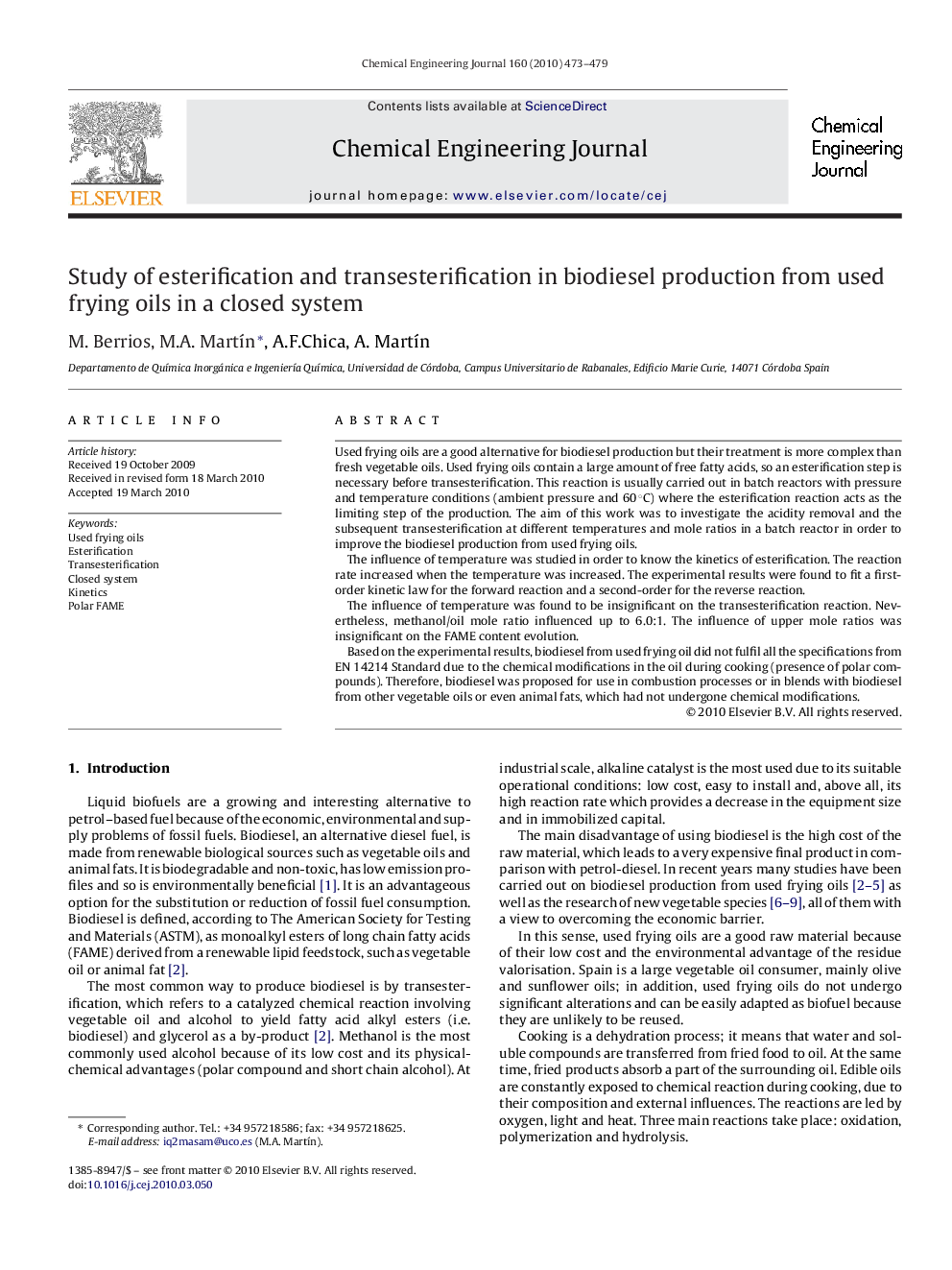| Article ID | Journal | Published Year | Pages | File Type |
|---|---|---|---|---|
| 151516 | Chemical Engineering Journal | 2010 | 7 Pages |
Used frying oils are a good alternative for biodiesel production but their treatment is more complex than fresh vegetable oils. Used frying oils contain a large amount of free fatty acids, so an esterification step is necessary before transesterification. This reaction is usually carried out in batch reactors with pressure and temperature conditions (ambient pressure and 60 °C) where the esterification reaction acts as the limiting step of the production. The aim of this work was to investigate the acidity removal and the subsequent transesterification at different temperatures and mole ratios in a batch reactor in order to improve the biodiesel production from used frying oils.The influence of temperature was studied in order to know the kinetics of esterification. The reaction rate increased when the temperature was increased. The experimental results were found to fit a first-order kinetic law for the forward reaction and a second-order for the reverse reaction.The influence of temperature was found to be insignificant on the transesterification reaction. Nevertheless, methanol/oil mole ratio influenced up to 6.0:1. The influence of upper mole ratios was insignificant on the FAME content evolution.Based on the experimental results, biodiesel from used frying oil did not fulfil all the specifications from EN 14214 Standard due to the chemical modifications in the oil during cooking (presence of polar compounds). Therefore, biodiesel was proposed for use in combustion processes or in blends with biodiesel from other vegetable oils or even animal fats, which had not undergone chemical modifications.
